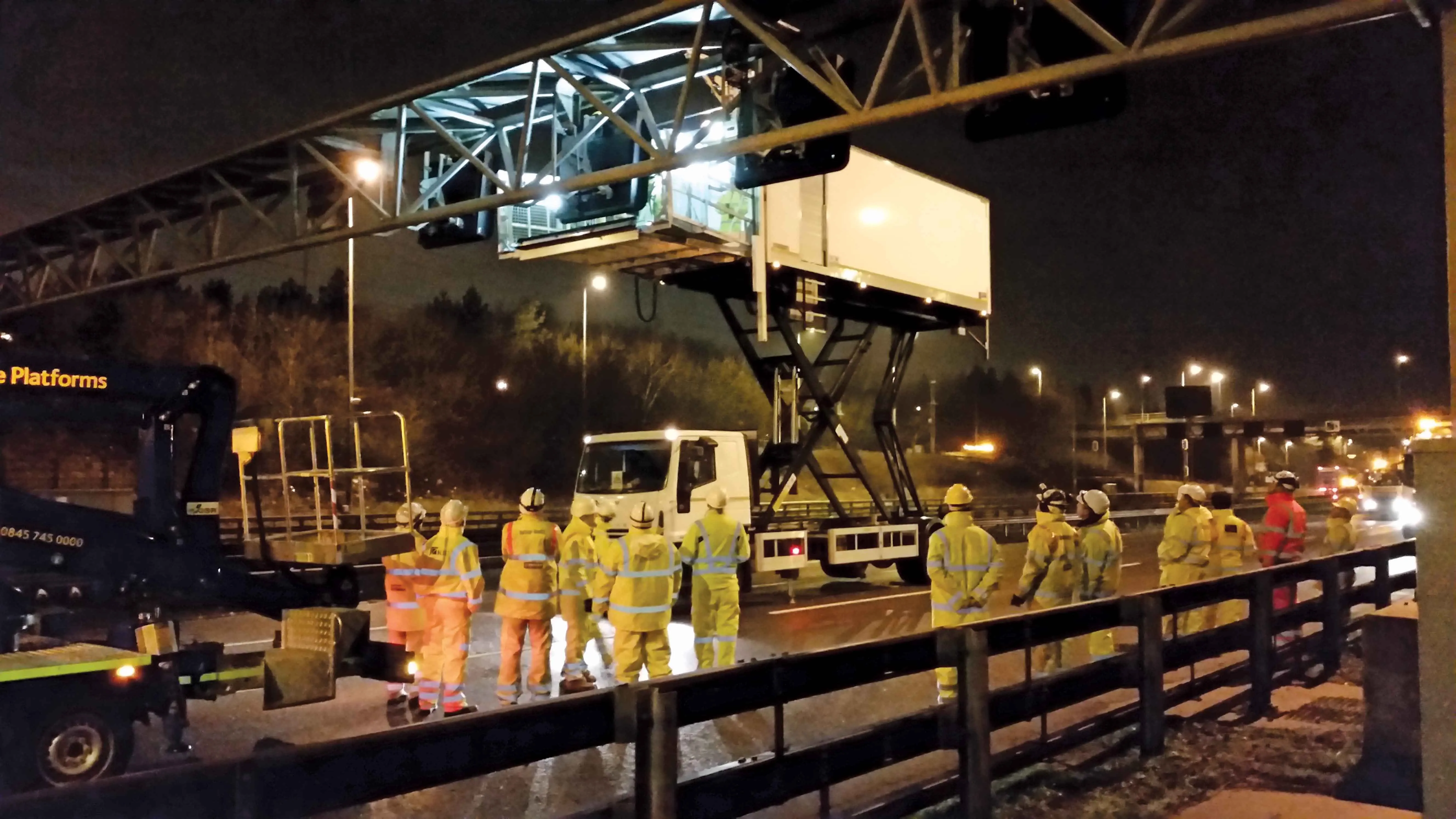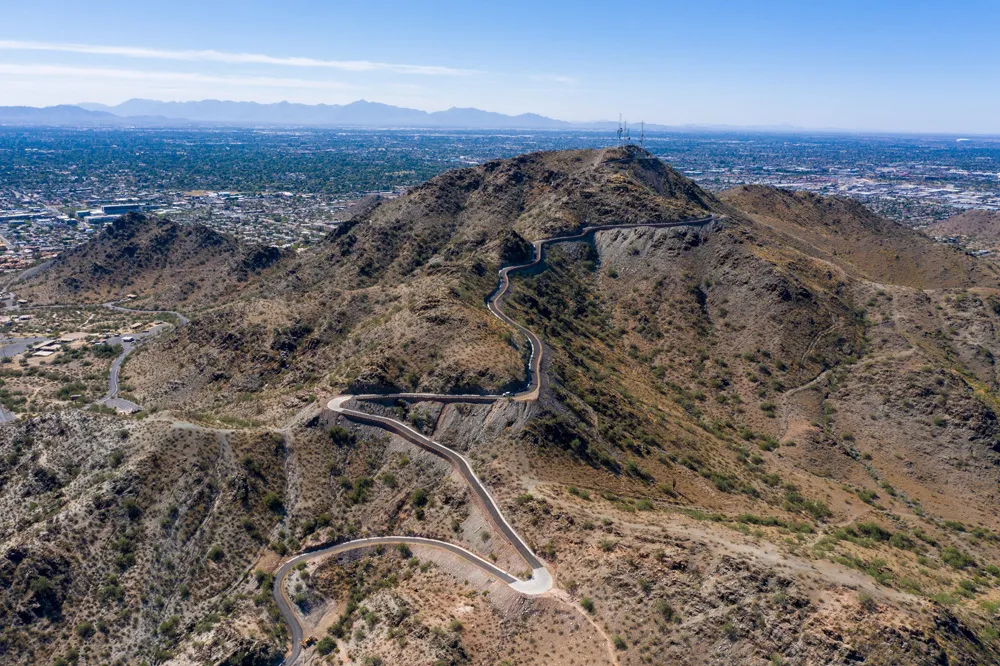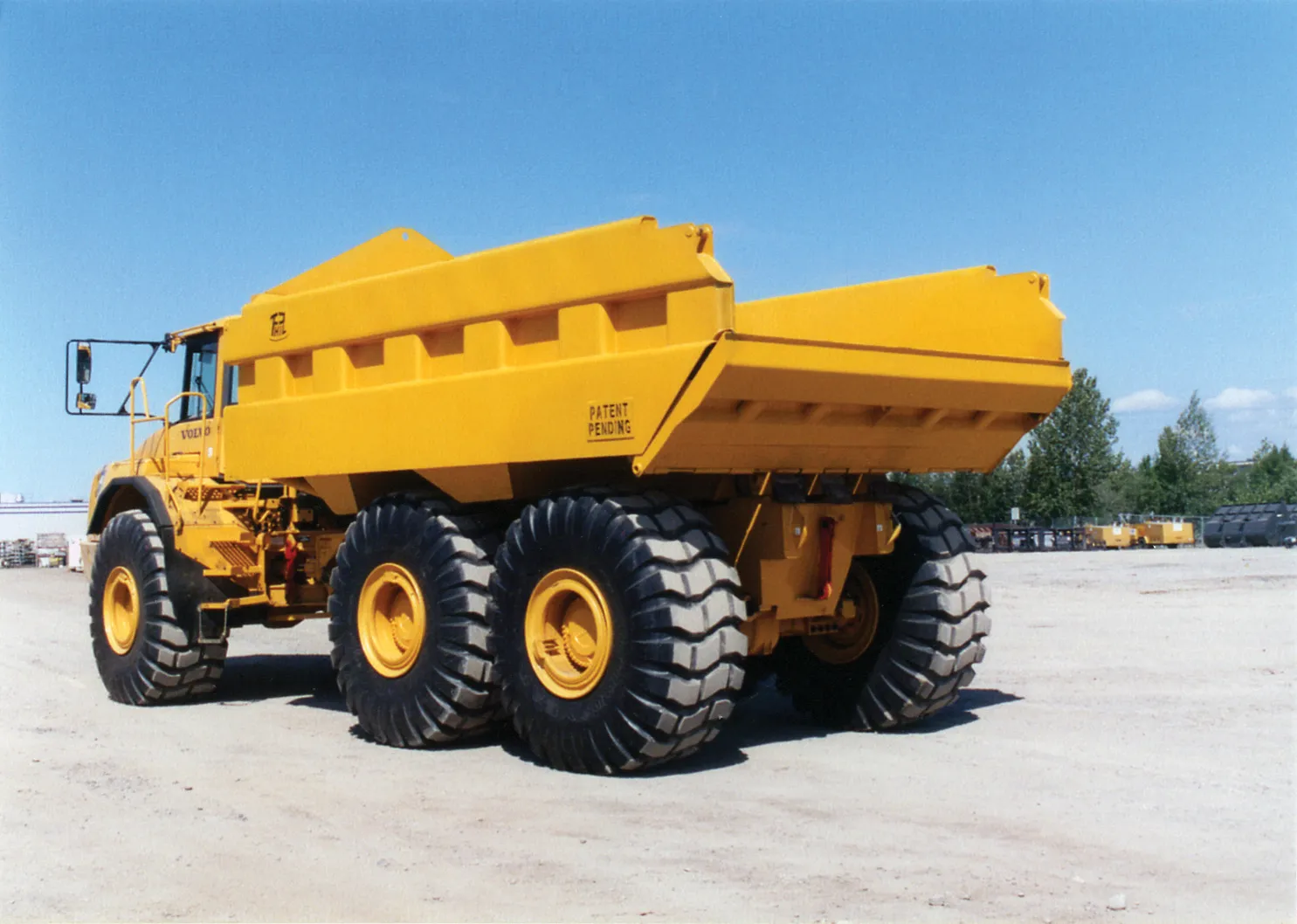Highways England has developed a vehicle to help replace overhead highway signs that it says will reduce the need to close lanes and roads during work
The vehicle uses a hydraulic scissor lift similar to that seen on catering vehicles that load food into the hold of airplanes at airports. Traditionally, signs are taken down and installed using a flatbed truck, crane and cherry picker, taking up to 40 minutes. However, the Maintenance Assistance Vehicle (MAV) can do this in around 20 to 25 minutes by usin
July 7, 2016
Read time: 2 mins

The vehicle uses a hydraulic scissor lift similar to that seen on catering vehicles that load food into the hold of airplanes at airports. Traditionally, signs are taken down and installed using a flatbed truck, crane and cherry picker, taking up to 40 minutes. However, the Maintenance Assistance Vehicle (MAV) can do this in around 20 to 25 minutes by using a small jib crane which is part of the vehicle.
Road workers have trialled the MAV and have had to shut down fewer lanes for the operation. Highways England said the device provides a safer environment for workers because they are standing on a sturdy platform.
Once the platform is raised to the required working height, the jib crane attaches to the sign on the gantry and lifts it off. Operatives then detach the sign, place it onto a trolley on the platform and wheel it into the main compartment of the vehicle. The procedure is reversed when installing an electronic sign.
The hydraulically powered scissor lift enables the signs, which are often found on smart motorway gantries, to be serviced at heights of up to 8.5m and in wind speeds of up to nearly 50kph. CCTV cameras enable the MAV driver to park the vehicle in the correct place below the gantry before any maintenance takes place and monitor operatives working at the back.
Highways England said it is examining the best way for its contractors to purchase the machines. It is estimated that if the device were widely adopted it could save up to €5 million a year. Consideration is also being given as to whether it could be used to improve safety for other duties on England’s motorways and major A roads.








